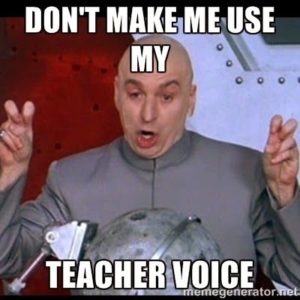It is a truth universally acknowleged that kids hate school. Even the ones who love it, are publically obliged to swear it’s hell on toast. Which makes me wonder why writing groups for kids are based on a traditional classroom model: An adult sits at the front, talks at you a bit, sets an exercise and then judges your work.

Not saying there’s anything wrong with classrooms or teachers, just that, for some kids, the classroom setting is tied up with notions about assessment and right/wrong, pass/fail, which isn’t really what creativity is about.
Most writing classes have to be run this way because it’s usually a one-off session or a course that people have paid to do, so of course you need to provide actual instruction. And this can be brilliant and helpful. But a regular school writing group has certain advantages that you don’t get from one-off taught classes and we can exploit these. Such as:
- It’s a free and they don’t have to commit to regular attendance, which can be off-putting when you’re a GCSE-facing 16 year old with a boyfriend, piano lessons, weekend hockey and a babysitting empire.
- It’s self-directed. Some people just don’t respond well to prompts and exercises. As soon as you give me a topic to write about, it’s the last topic in the world I want to write about.
- It’s regular. I’ve done writing workshops where, understandably, no one is willing to read aloud their first draft efforts to complete strangers. But because my young writers have become friends, they’re quite comfortable with it.
- It’s social. They need time after school to decompress and exhale all the conversation they’ve been suppressing since 9am, and sometimes there’s intermittent talk all the way through, but actually, it’s surprising how much work they do. In a way, it emulates a real writing life – there’s a lot of Facebooking, procrastinating and biscuits, but the work somehow gets done anyway.
- It’s not like school. One of my young writers told me that their school librarian set up a lunchtime writing club but they didn’t like it. When I asked why, they said, ‘She makes you do stuff.’ Much as I would have loved a writing group at my school, I can understand why kids wouldn’t want to spend their only break in a long school day at something that felt like another class. But there are ways to avoid that dynamic.
The most important (and easiest) thing a regular writing group provides is Time and Space. Some of my young writers tell me that when they’re at home they never write because there are too many distractions. A writing group is time and space devoted purely to writing, and any writer will tell you that is invaluable. I really believe you don’t have to do much more than provide that time and space.

In our product-driven, value-for-money oriented culture I feel a bit weird asking you to follow my blog or let me come to your school so I can tell you how to do nothing but honestly it works. And it’s harder than you think to get your head around that. Especially if you’re used to the Education Boards breathing down your neck to prove exactly which learning outcomes boxes you’ve ticked today.

(And just because you’re not doing formal, traditional teaching doesn’t mean that you’re not teaching them anything or that they’re not learning anything, but we’ll go into that more later.)
The kids are used to seeing that classroom/teacher setting as ‘work’ (I know that’s terribly unfair to all those amazing teachers who put so much effort into engaging their students and making school fun, but at the end of the day classrooms are assessment-based and that can be off-putting for some kids).
Personally, I think libraries are great places to create a more relaxed atmosphere. And librarians would be great at this (Yay Libraries!). I’ve been meeting with librarians to tell them about the project and what I’ve learned from being behind the scenes at a librarian’s meeting is how much they care, how much they want to contribute to their schools, and how they know and interact with the students in a different way to the way teachers know and interact with them.
Obviously, teachers can also be brilliant creative writing mentors and I hope they’ll be inspired to do so (and I know some who already are), they just might have to negotiate that dynamic more carefully to avoid those assessment-y classroom-y assumptions a lot of kids will have about teachers – They make you do stuff…
Also, I’m aware that some schools don’t have a library or librarian at all (grrr).

So you must do what works for your school.
With my young writers, the basic format is that we meet after school for two hours (you may have less time but that’s fine). We spend the first twenty minutes chatting and catching up and then the kids spread themselves around the space and write whatever they want for an hour, then we spend the last half hour reading our work aloud (if they want to) and giving each other feedback. It’s really that simple.
Having said all that, it can help to provide some direction for those kids who want it, making sure they know it’s all optional, and there are ways you can help them develop as writers and as people without making it feel like school, and I’ll be going into much more detail about how we do that and providing resources you can use, but I can’t stress enough that all you really need to provide is that time and space, encouragement and freedom. The kids will do the rest.
The main point I want to get across here is that it’s not hard at all and anyone can set up a group like this. I hope you’ll consider it and I hope I can support you along the way!
Kelly
x
(You can ‘Subscribe to the Blog by Email’ at the bottom of the page)
Leave a Reply